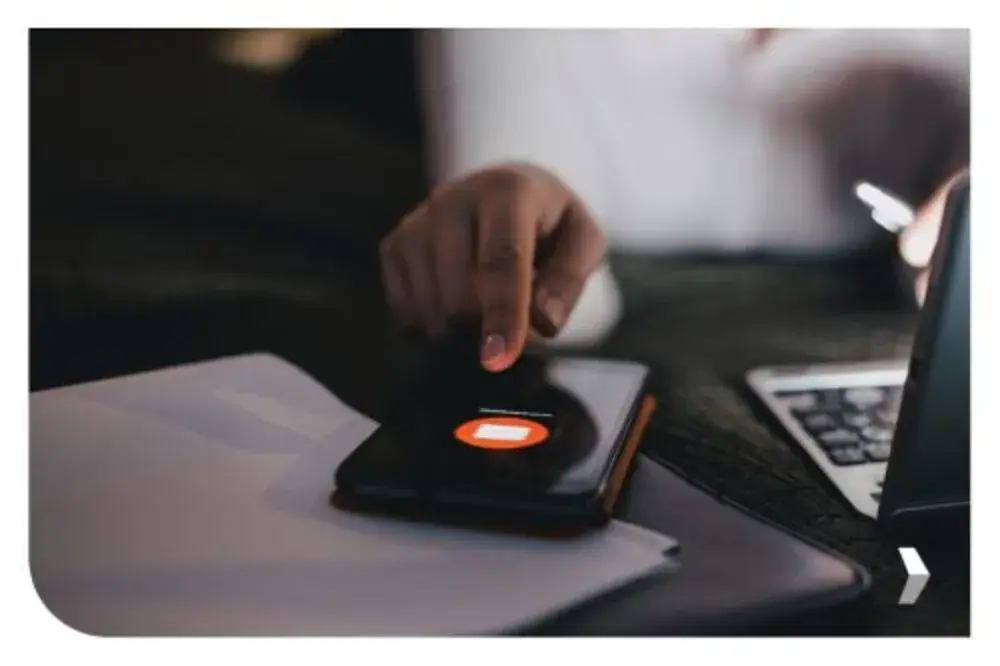Phishing Scams: How to Identify and Avoid Them
March 21, 2022 — 5 min read
Did you know scammers use a simple technique known as phishing to target people in the midst of a homebuying process? Thankfully, it's easy to avoid phishing scams, especially if you know what to look for. Here are what some common phishing scams look like, and precautions you can take to protect yourself and your investment.
What is Phishing?
Phishing is the most common form of internet fraud, though it can happen through a variety of channels, including email, phone calls, and text messages. The word "phishing" refers to the idea that scammers who use this technique "fish" for their marks. They put the bait out there and wait to get a bite (or, more accurately, a response). This bait comes in the form of what looks or sounds like an official message from a government agency, company, or financial institution.
These messages almost always include a vague but potentially stressful problem, such as an account being past due or additional funds needed to complete a transaction. Additionally, after introducing a problem, the message will request a solution in the form of specific, sensitive personal information such as bank routing and account numbers, social security numbers, and credit card account information.
That element of stress and sensitivity is the key to most scammers' success: they manipulate their victims into acting impulsively. Therefore, you can protect yourself by taking time to think before you act.

Phishing Scams and Real Estate Transactions
While some phishing scams cast a wide net, others target very specific populations. In some cases, they've even targeted people who are in the process of buying a home. These real estate scams involved hackers gaining access to a real estate or title company's recent transactions. The scammers then used this information to contact people on the customer list and try to get victims to send money via wire transfer. In fact, they've even gone so far as to attach a fraudulent invoice to an email or text in order to seem more authentic.
Fortunately, this is a rare occurrence. Most real estate and title companies work hard to preserve their clients' privacy and security. Still, it's a good idea to act deliberately when you receive a message that suggests there may be something wrong with your transaction.
If you get a communication like this, ignore it or hang up the phone immediately. Don't worry about being rude, don't click any links or attachments, and don't respond in any way. Then, run through the spotting and checking steps below before deciding how to respond.

Phishing Defense: Spotting a Scam
Phishing scams tend to have notable red flags. Some messages may have only one red flag, while others may have multiple signs:
Vague
Phishing messages usually say something like "This is the payment processing department. Your payment is past due and your service will be terminated." That sounds scary at first, but wait a minute: which company's payment processing department is this? What is the past-due amount? What kind of service is being terminated? A legitimate organization would never be this vague.
Unusual
Scammers also often communicate in weird ways. If your bank usually sends official communications via secure online message or postal mail, any text messages or emails you get claiming to be from your bank are suspicious.
Dead-end
Legitimate organizations make their identities clear, and they also make it easy for customers to get in touch. If you get a message with no customer service contact info, that's a red flag.
Unknown
Due to the prevalence of phishing scams, legitimate companies know to use familiar addresses and phone numbers to contact their customers. This means any sensitive requests that come from a completely unknown source are automatically suspicious. If the message comes via email, look into the details. Phishing scammers sometimes use bogus web addresses to appear authentic. This can include using a .net or a .com instead of a .gov, using a number or symbol that looks similar to another (like a zero instead of the letter "O") or spelling a business' name with one letter out of place.
Unsecured
Legitimate organizations usually won't ask for or give out sensitive information like account numbers over the phone. If a communication is asking you to freely give out information that's normally much more carefully protected, that's a major sign that something's wrong.

Phishing Defense: How to Avoid Scams
From false wire payments to fake offers for mortgage relief, money lost from phishing scams can be difficult to recoup. To avoid falling victim, pay attention to every step of your mortgage process, and don't be afraid to ask questions.
Understand the terms. Comb through documents to make sure they're complete, and ask for clarification before signing, if needed. If you have additional questions, check out our glossary.
Don't accept unsolicited offers. Fraudsters often seek out targets. If you receive an unsolicited loan offer, get in touch with your Mortgage Advisor team to make sure they know what's going on. They'll help you understand what's going on and whether the message is legitimate.
Don't send information or loan documents electronically. Legitimate lenders will provide a platform to encrypt your documents, which makes it difficult for scammers to intercept them.
Never open an attachment from an unfamiliar email address, unless you can validate it first. Possibly, these messages could contain malware, which gives fraudsters a way into your computer, where they can collect personal information.
Work with a legitimate mortgage company with an established history. Your PacRes Mortgage Advisor will walk with you through the entire mortgage process, so you'll recognize when something doesn't feel right.
Do you have any questions or concerns about the homebuying process? Contact your local Mortgage Advisor today to start a conversation.
Keywords:
Categories
Archives
Recent Posts
You bring the dream. We'll bring the diagram.
There’s a financing solution for just about every situation.
I felt like I was treated like family, great communication and helping me with any questions I had.

You bring the dream. We'll bring the diagram.
There’s a financing solution for just about every situation.
Where does your sun shine? Find your local advisor.
Enter your city or state to see advisors near you.
